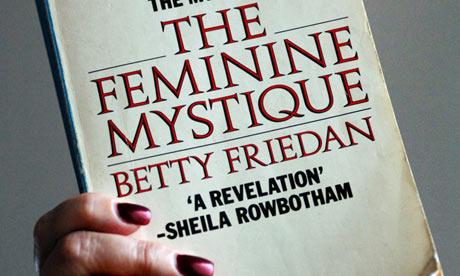Book review: “The Feminine Mystique”

This year marks the 50th anniversary of “The Feminine Mystique” by Betty Friedan, a groundbreaking, society-defining text that continues to be viewed as progressive and controversial in our time.
The fact that this year’s common text deals with almost the exact same issue, women’s rights, shows that no relevance has been lost at all in 50 years for Betty Friedan’s magnum opus. Think back to 1963, the start of an era of massive change in the way America would think about its women, racial minorities, homosexuals, environment and youth.
Along with other classics, like “Silent Spring” by Rachel Carson and “The Twist” by Chubby Checker, this book struck a chord with the public, prompting a divisive break from tradition that we still have not recovered from to this day.
To us, the basic premise of “The Feminine Mystique” may seem painfully obvious: women should have the same opportunities as men.
The subject was (and is) much more complex than that. The “mystique” in the title refers to the mystery surrounding what is deemed feminine and appropriate for a women to do. Should she only focus on the house and kids? Should she first think of her husband? Is it selfish to spend a thousand dollars of her husband’s money on a Chanel handbag? These questions have no conclusive answer, and rather than answer them, what Friedan does is explain to women that there is no exclusive women club, no mystique, just them, able to decide the course of their lives as well as any man.
At the moment that information was released, on that Tuesday 50 years ago, the Cleaver family ideal became a mere memory.
Was this break for the better? I do not know. Divorce rates are at an all-time high, microwave dinner sales are a fast-growing segment of average household expenditures and not to mention that awful “Modern Dads” show on A&E.
These are all products, more or less, of “The Feminine Mystique” and its successors. Of course, this book too gave impetus to some remarkable women like Hillary Clinton, Harper Lee and the members of Bikini Kill.
So, no matter what side of the issue one argues from, I believe we can all agree that this book is not going anywhere, 50 years is not very long in history and Mrs. Friedan’s book will continue to influence society subtly, but assuredly, for at least another half-century.






